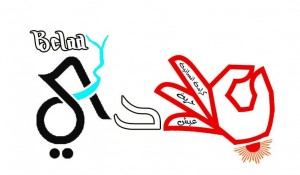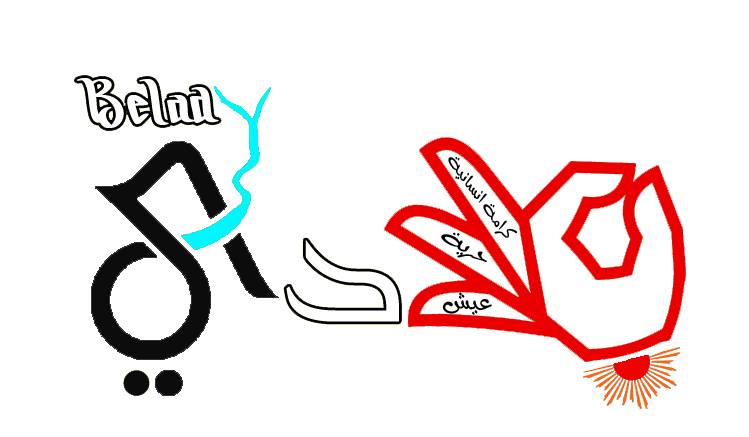 The undersigned organizations strongly condemn the ongoing pretrial detention of Aya Hegazy and her husband Mohammed Hassanein, the founders of the Belady Humanitarian Island Foundation, along with foundation volunteers Sherif Talaat Mohammed and Amir Farag, for more than two full years in connection with case no. 4252/2014/Abdin felonies. Their ongoing detention is a violation of Article 143 of the Code of Criminal Procedure, which sets the maximum term of pretrial detention at two years. We ask that all defendants in the case be immediately released, both those who have been detained beyond the legal limit and other volunteers with the foundation (Ibrahim Abd Rabbo, Karim Magdi, and Mohammed al-Sayyed Mohammed) who have been in custody for more than 18 months. The suppression of this youth initiative for the rehabilitation of street children is yet another example of the systematic crackdown on volunteer action, the intimidation of young people, and the curtailment of the sphere of public action.
The undersigned organizations strongly condemn the ongoing pretrial detention of Aya Hegazy and her husband Mohammed Hassanein, the founders of the Belady Humanitarian Island Foundation, along with foundation volunteers Sherif Talaat Mohammed and Amir Farag, for more than two full years in connection with case no. 4252/2014/Abdin felonies. Their ongoing detention is a violation of Article 143 of the Code of Criminal Procedure, which sets the maximum term of pretrial detention at two years. We ask that all defendants in the case be immediately released, both those who have been detained beyond the legal limit and other volunteers with the foundation (Ibrahim Abd Rabbo, Karim Magdi, and Mohammed al-Sayyed Mohammed) who have been in custody for more than 18 months. The suppression of this youth initiative for the rehabilitation of street children is yet another example of the systematic crackdown on volunteer action, the intimidation of young people, and the curtailment of the sphere of public action.
The seventh trial session for the Belady Foundation case is scheduled for May 21. Although the first trial session was held on March 14, 2015, the defense was unable to make its case until the fourth session, after the court finally ruled to unseal the evidence for review and hear prosecution witnesses, but due to technical difficulties with the electronic evidence, the trial was postponed for two additional sessions. In the previous session of April 20, the competent committee was scheduled to present its report on the contents of the electronic evidence, but due to a procedural error in the appointment of the committee, which was not staffed as legally required, the court ruled to adjourn until May 21, to turn the evidence over to the committee to allow it to present its report at a later day. The court also ruled to keep the defendants in custody, now longer than 24 months, without any clear legal basis.
Pretrial detention has become a form of punishment in and of itself, a means to retaliate against activists unrelated to any legal grounds for detention. In many cases, defendants have been held for periods exceeding the legal limit while trials are repeatedly postponed, often for reasons unrelated to evidence gathering, witness testimonies, or investigations, but rather bureaucratic measures and administrative complications that have nothing to do with the content of the case and take no account of the months defendants remain in inhumane prisons without justification. As the defendants in the Belady Foundation case enter their third year of pretrial detention, Mahmoud Abu Zeid, known as Shawkan, has now been detained pending trial for 2 years and eight months.
It is clear that courts are not complying with Article 143 of the Code of Criminal Prosecution, which stipulates a 2-year maximum period for pre-trial detention. Instead courts are imprisoning people in pre-trial detention for periods that exceed the maximum period allowed by law. Pre-trial detention orders become similar to arrest warrants coming from judicial authorities because Article 143 establishes a maximum period of detention in the stages of investigation, trial, and before the verdict of a criminal case, and only in cases of defendants being sentenced to life imprisonment or death. However, it also grants absolute discretionary power to the court of cassation and the court of referral to extend pre-trial detention with no maximum time limit. People languishing in prison without trial and without being sentenced for periods exceeding the maximum allowed, is therefore, an absolute violation of the law and the constitution.
Police forces raided the offices of the Belady Foundation on the evening of May 1, 2014, pursuant to a false complaint that was filed after the raid. Police arrested Aya Hegazy, her husband, and two volunteers, as well as 17 children who were on the premises at the time of the raid. The prosecution’s investigations subsequently implicated other volunteers with the initiative and two friends of Mohammed Hassanein who have no connection with the foundation. The Central Cairo Plenary Prosecution referred all eight defendants to the Abdin Court on September 8, 2014 on eight fabricated charges. Although legal steps had been taken since December 2013 to register the Belady Foundation as a civic association under the Ministry of Social Solidarity, five months of bureaucratic and security complications prevented the foundation from obtaining its registration number before the raid in May 2014. As a result, the prosecution was able to charge the founders with founding and operating a criminal group for the purposes of human trafficking, detaining children in an isolated place, physically torturing children, and beating them to compel them to engage in debauchery and sex. These allegations were disproved by forensic medical reports, which found the children exhibited no signs of torture or sexual assault in the period in question. Notarized statements from defense witnesses also affirm that the children were treated humanely and with dignity, that the foundation’s office on Mohammed Mahmoud Street downtown was well known, and that its activities were well known and public and had been covered by the media as an example of a pioneering youth initiative worthy of emulation.
Signatory organizations:
- Cairo Institute for Human Rights Studies
- Andalus Institute for Tolerance and Anti-Violence Studies
- Appropriate Communications Techniques for Development (ACT)
- Arab Network for Human Rights Information
- Arab Penal Reform Organization
- Association for Freedom of Thought and Expression
- Center for Egyptian Women’s Legal Assistance
- Egyptian Commission for rights and freedoms
- El-Nadeem Centre for the rehabilitation of victims of violence and torture
- Habi Center for Environmental Rights
- Hesham Mobarak Law Center
- National Community for Human Rights and Law
- Nazra for Feminist Studies
- The Egyptian Association for Community Participation Enhancement
- The Egyptian Center for Public Policy Studies
- The Egyptian Coalition for the Rights of the Child
- The Egyptian Foundation for the Advancement of Childhood Conditions
- Land Center for Human Rights
Share this Post

